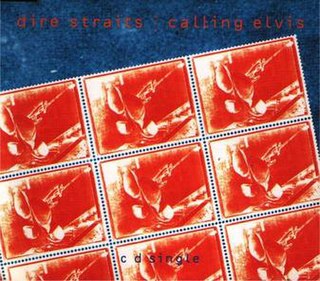
"Calling Elvis" is a song written by Mark Knopfler and performed by British rock band Dire Straits. It first appeared on the final studio album by the band, On Every Street (1991). It was released in August 1991 by Vertigo and Warner Bros. as the first single from that album, peaking at number 21 in the United Kingdom, and reaching the top 10 in numerous other countries. It was included on the 2005 compilation The Best of Dire Straits & Mark Knopfler: Private Investigations. A live version of the song also appears on the 1993 live album On the Night.

"Too Many Broken Hearts" is a song by Australian singer and actor Jason Donovan, released on 20 February 1989 as the third single from his debut album, Ten Good Reasons (1989), and 1991's Greatest Hits album and again on a later collection in 2006. The song reached number-one in the United Kingdom and Ireland in March 1989. The song additionally peaked within the top 10 in Australia, Denmark, France, the Netherlands, Norway and Spain. British magazine Classic Pop ranked "Too Many Broken Hearts" number 19 in their list of "Top 40 Stock Aitken Waterman songs" in 2021.
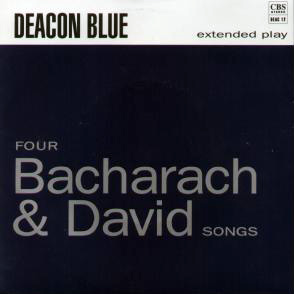
Four Bacharach & David Songs is an extended play (EP) of four songs written by the songwriting team of Burt Bacharach and Hal David, performed by Scottish rock band Deacon Blue. It was released on 7-inch vinyl, 12-inch vinyl, CD, and cassette on 13 August 1990.
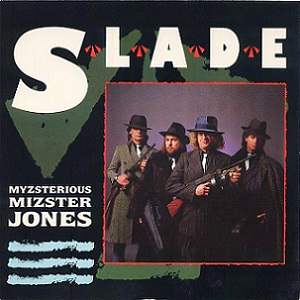
"Myzsterious Mizster Jones" is a song by English rock band Slade, released in 1985 as the third single from their twelfth studio album, Rogues Gallery. The song was written by lead vocalist Noddy Holder and bassist Jim Lea, and was produced by John Punter. "Myzsterious Mizster Jones" reached number 50 in the UK Singles Chart and remained in the top 100 for five weeks.
"Hard to Handle" is a 1968 song written by American soul singer Otis Redding along with Al Bell and Allen Jones. Originally recorded by Redding, it was released in 1968 as the B-side to "Amen". The song also appears on the 1968 album The Immortal Otis Redding. Redding's version reached number 38 on the Billboard R&B chart and number 51 on the pop chart.
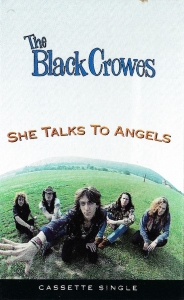
"She Talks to Angels" is a song by American rock band the Black Crowes. It is the eighth track on their first album, Shake Your Money Maker (1990), and was the fourth single released from the album in 1991. The song reached number 30 on the US Billboard Hot 100, number one on the Billboard Album Rock Tracks chart, and number 21 in New Zealand.

"7 Year Bitch" is a song by English rock band Slade, released in 1985 as the second single from their twelfth studio album, Rogues Gallery. The song was written by lead vocalist Noddy Holder and bassist Jim Lea, and was produced by John Punter. It reached number 60 in the UK Singles Chart and remained in the top 100 for three weeks.

"Ruby Red" is a song by English rock band Slade, released in 1982 as the third single from the band's tenth studio album, Till Deaf Do Us Part. It was written by lead vocalist Noddy Holder and bassist Jim Lea, and was produced by Slade. "Ruby Red" reached number 51 in the UK Singles Chart and remained in the top 75 for three weeks.

"Winter" is a song by Scottish band Love and Money, which was released in 1991 as the third and final single from their third studio album Dogs in the Traffic. The song was written by James Grant and produced by Steve Nye. "Winter" reached No. 52 in the UK Singles Chart and remained in the Top 100 for two weeks.
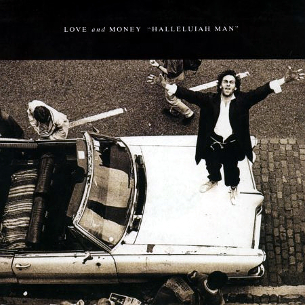
"Halleluiah Man" is a song by Scottish band Love and Money, which was released in 1988 as the lead single from their second studio album Strange Kind of Love. The song was written by James Grant and produced by Gary Katz. "Halleluiah Man" reached No. 63 in the UK Singles Chart and No. 75 on the US Billboard Hot 100.
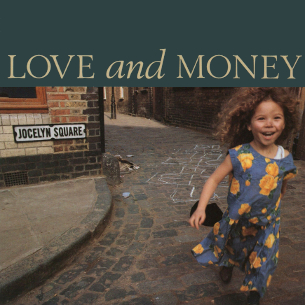
"Jocelyn Square" is a song by Scottish band Love and Money, which was released in 1989 as the third single from their second studio album Strange Kind of Love. The song was written by James Grant and Bobby Paterson, and produced by Gary Katz. "Jocelyn Square" reached No. 51 in the UK Singles Chart and remained in the Top 100 for four weeks.
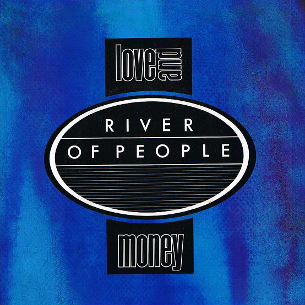
"River of People" is a song by Scottish band Love and Money, which was released in 1987 as the third single from their debut studio album All You Need Is.... The song was written by James Grant and Bobby Paterson, and produced by Tom Dowd. "River of People" reached No. 82 in the UK Singles Chart and remained in the Top 100 for four weeks.

"I Don't Know Why I Love You" is a song from English alternative rock band the House of Love, which was released by Fontana in the UK in 1989 as the second single from their second studio album The House of Love (1990). The song was written by Guy Chadwick, and produced by Stephen Hague and Dave Meegan. "I Don't Know Why I Love You" peaked at number 41 in the UK Singles Chart.
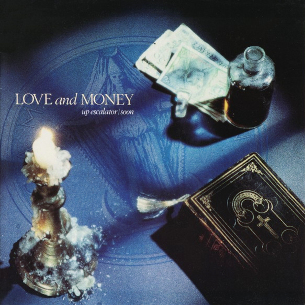
"Up Escalator" is a song by Scottish band Love and Money, which was released in 1989 as the fourth and final single from their second studio album Strange Kind of Love (1988). The song was written by James Grant and produced by Gary Katz. "Up Escalator" reached number 79 in the UK Singles Chart and remained in the Top 100 for two weeks.
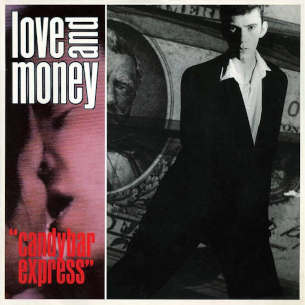
"Candybar Express" is a song by Scottish band Love and Money, which was released in 1986 as the debut single from their debut studio album All You Need Is.... The song was written by James Grant and produced by Andy Taylor. "Candybar Express" reached number 56 in the UK Singles Chart and number 10 on the Billboard Hot Dance/Disco Club Play chart.

"Strange Kind of Love" is a song by Scottish band Love and Money, which was released in 1989 as the second single from their second studio album Strange Kind of Love. The song was written by James Grant and produced by Gary Katz. "Strange Kind of Love" reached number 45 in the UK Singles Chart and remained in the top 100 for five weeks.

"Whose Problem?" is a song by American new wave band The Motels, which was released in 1980 as the third and final single from their second studio album Careful. The song was written by Martha Davis and produced by Carter. "Whose Problem?" failed to chart in the US, but reached number 42 in the UK Singles Chart and number 43 in the Australian Kent Music Report chart.

"Take the L" is a song by American new wave band The Motels, which was released in 1982 as the second single from their third studio album All Four One. The song was written by Marty Jourard, Martha Davis and Carter, and produced by Val Garay. "Take the L" peaked at number 52 on the US Billboard Hot 100.

"The Loser Gets to Win" is a song by English singer Kiki Dee, released in 1983 by EMI as a non-album single. The song was written by Dee, Harry Bogdanovs and Gary Osborne, and produced Elton John and Osborne.

"My Love Lives in a Dead House" is a song by Scottish band Love and Money, released in 1991 as the lead single from their third studio album Dogs in the Traffic. The song was written by James Grant and produced by Steve Nye. It peaked at number 83 in the UK Singles Chart.



















